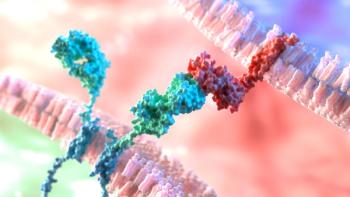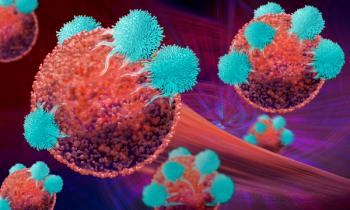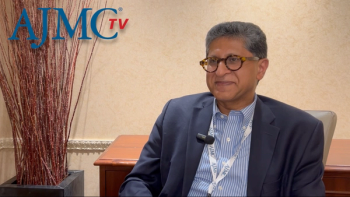
Circulating T Cells Provide Insight on Tumor Sister Cells in Advanced Melanoma
A new study found that performing single-cell RNA sequencing on T cells circulating in the blood provided significant insight on sister cells within tumor tissue in advanced melanoma.
A new study published in the Journal of Experimental Medicine found that performing single-cell RNA sequencing on T cells circulating in the blood provided significant insight on sister cells within tumor tissue in advanced
“These results are important because they lay the foundation for setting up a blood test that could provide information about how the immune system is dealing with a solid tumor over time without having to subject the patient to repeated biopsies. Moreover, they suggest that the blood contains a reservoir of T cells that are involved in the fight against the tumor,” said lead study author Liliana Lucca, PhD, an associate research scientist in the Yale School of Medicine Department of Neurology.2 Research from Dana-Farber Cancer Institute, Harvard Medical School, and the University of California, San Francisco also helped advance the study.
Investigators applied 10X single-cell RNA sequencing to both circulating and clonally expanded tumor-infiltrating T cells. By matching T cells present in patients’ blood and tumors based on T cell receptor (TCR) identity, researchers were able to identify a group of circulating T cells with sister cells in the tumor. The effector functions of T cells in both blood and tumor tissue reflected one another, but the T cells’ features of terminal exhaustion—loss of effector function—were mostly displayed in those taken from tumor tissue.
Even so, the identification of sister cells is promising, according to co-senior study author David Hafler, MD, chair of neurology and a professor of neurology and immunobiology at Yale School of Medicine; and neurologist-in-chief at Yale New Haven Hospital.
“Our findings are very encouraging as they show these T cells could be harnessed from the blood to be boosted and reinjected to the patient, an approach that is currently pursued only with T cells derived from removing a tumor, and therefore offered only to patients with operable tumors,” Hafler said.
Researchers were not able to determine whether the circulating cells were precursors to those present in or coming back from the tumor, but the circulating T cells did provide insight into the tumor-infiltrating T cells. They noted that the cells within tumor tissue that showed the strongest anti-tumor functions had sister cells present in the blood. The least functional T cells in the tumors, on the other hand, were confined to tumor tissue. This suggests that the most active T cells with anti-tumor activity are circulating between the tumor tissue and blood.
“We need to do more research to find some combination of molecules that can be used to isolate the circulating T cells that are related to the tumor-infiltrating ones without having to perform single-cell RNA sequencing for each patient,” said co-senior author Harriet Kluger, MD, director of the
References
1. Lucca LE, Axisa P, Lu B, et al. Circulating clonally expanded T cells reflect functions of tumor-infiltrating T cells. J Exp Med. Published online March 2, 2021. doi:10.1084/jem.20200921
2. Yale researchers identify tumor reactive immune cells to help fight against advanced melanoma. News release. Yale School of Medicine; March 2, 2021. Accessed March 5, 2021.
Newsletter
Stay ahead of policy, cost, and value—subscribe to AJMC for expert insights at the intersection of clinical care and health economics.








